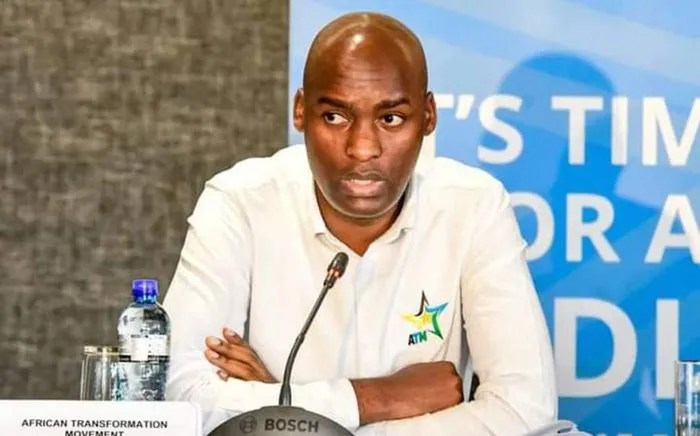Zungula ousted amid resistance to MK merger and rising popularity within ATM
POLITICS

Despite the upheaval, the ATM insists Vuyolwethu Zungula will remain its parliamentary leader and chief spokesperson, focusing on legislative advocacy while Nongqunga rebuilds the party’s grassroots machinery.
Image: Supplied
The African Transformation Movement (ATM) has removed its president, Vuyolwethu Zungula, and reinstated party founder and Spiritual Leader Caesar Nongqunga as party leader.
While the party has framed the leadership change as a strategic reorganisation ahead of the 2026 local government and 2029 general elections, internal sources paint a more contentious picture — one marked by factionalism, resistance to political mergers, and fears over Zungula’s growing influence.
Multiple insiders allege that Zungula’s ousting was less about strategy and more about silencing dissent.
According to senior figures within the party, Zungula had grown increasingly vocal in opposing a full-scale merger with the uMkhonto weSizwe (MK) party, led by President Jacob Zuma. While ATM and MK have announced plans to collaborate in future, Zungula remained adamant that the ATM must retain its independent identity.
“It was made clear to the leadership that he would not support any form of merger that led to ATM being swallowed up,” said one high-level source familiar with internal deliberations. “That resistance put him at odds with powerful figures both inside the party and externally. His growing popularity made him a threat.”
Just weeks before his removal, Zungula told The Star that both parties had agreed there would be “no dissolution, deregistration,” adding that “both parties continue to exist” and collaborate where appropriate. His insistence on political autonomy appears to have unsettled those pushing for closer and possibly permanent alignment with MK.
While the ATM officially maintains that the leadership change was due to a strategic division of roles, questions persist about the process that led to Zungula’s removal. Notably, he was absent from the National Executive Committee (NEC) meeting where the decision was made, despite being a sitting NEC member. Sources close to Zungula confirm that he was not consulted or informed beforehand.
“This wasn’t just undemocratic; it was calculated,” said one source close to the former leader. “It was about power and control, and stopping Zungula before he became untouchable.”
The timing of the move has raised further eyebrows. Zungula has gained substantial ground in recent years, praised for his parliamentary leadership and growing national profile.
His principled positions, particularly his vocal stance on anti-corruption, reportedly clashed with emerging internal interests, including those linked to the controversial VBS Mutual Bank scandal. While Zungula has never been implicated, his internal opponents may have viewed his moral clarity as a threat to their ambitions.
Despite the upheaval, the ATM insists Zungula will remain its parliamentary leader and chief spokesperson, focusing on legislative advocacy while Nongqunga rebuilds the party’s grassroots machinery. However, observers note that sidelining a popular figure like Zungula could backfire.
Political analyst Lungi Mhlanga warns that the ATM risks alienating its support base: “Zungula represented credibility, youth, and principled politics. Removing him in such an opaque manner could cost the party dearly.”
As the party attempts to project unity, internal fractures remain unresolved. The next few months will be critical as ATM tries to navigate internal dissent, clarify its relationship with MK, and prepare for its electoral battles ahead.